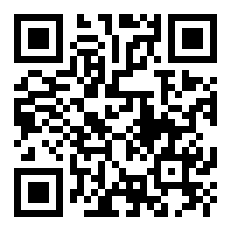The nature and dynamics of taboos in Igbo land
Keywords:
Nature, dynamics, taboos, Igbo language, Igbo landAbstract
Those who study continuity and change in language have much to discover by delving into the unmentionable. In a striking example of scholarly squeamishness, it has been relatively recently that the effects of taboo on language development have really made an appearance in the mainstream of linguistic literature. In the name of decency and decorum, discussion of taboo, even within historical linguistic textbooks, focused on remote examples involving the primitive word, magic, and taboos on dangerous animals. In Igbo land, some words cease to be used due to the development of a taboo. In this case, a taboo word is one that has come under prohibition, usually because of the sacred status and reference of the word in question because of fear inspired by the referent. Hence, among the Igbo people of South-East Nigeria, linguistic taboos are powerful forces, and they are extremely important in so far as ethical principles and rules of conduct have been preserved over the ages through the observances of taboos. This provided explanations of the reasons, motives, values, and purposes of behaviour among the Igbo people. This paper therefore presents a sociolinguistic analysis of taboo phenomena in Igbo land. Taboo words are examined and explained in their socio-cultural and communicational contexts in Igbo land. In other words, they are treated as a dynamic phenomenon. The Hymes Pragmatic Theory which emphasizes on knowing the vocabulary, grammar, and context of every word, is used in this work. The paper concludes with discussions that encourage further studies on taboo as a cultural and linguistic phenomenon.
References
Afigbo, A. E. (1981). The age of innocence: The Igbo and their neighbours in pre-colonial time. Owerri: Ministry of Information.
Allan, K. & Burridge, K. (2009). Forbidden words: Taboo and censoring language.Cambridge: Cambridge University Press.
Anderson, L. G. & Trudgill, P. J. (1990). Bad language. Oxford: Basil Blackwell.
Belonwu, I. (1967). An Igbo Course. Oxford: Oxford University Press.
Ekeopara, C. A. (2011). Ethical order and stability in traditional Igbo society. Calabar: Excel Publishers.
Emenanjo, E. (2001). Igbo or Igboid: Asusu n’agburu ndi Igbo. Language in Igbo Civilization. Ahajioku Lecture. Owerri: Ministry of Information and Culture.
Esquibel, J. (2012). Devil aka satan: An Enemy or Friend. On the rival between the familiar and the foreign in early English. A journal of English linguistics. 1:96-113. Retrieved 9 April 2019.
Fairman, C.M. (2009). Word taboo and protecting our first amendment Liberties. Illinois: Sphnix Publishing Inc.
Hudson, R. A. (1996). Sociolinguistics. 2nd Ed. England: Cambridge University Press.
Hughes, G. (1998). Swearing: A Social History of Foul Language, Oaths and Profanity in English. London: Clays Ltd. Ives PLC.
Hymes, D. (1964). Languages in culture and society: A reader in linguistics and anthropology. New York: Harper and Row.
Kramsch, C. (1998). Language, culture and context. Cambridge: Cambridge University Press.
Kroeber, A. (1968). The subject matter of anthropology. Readings in Anthropology (Vol.1). M. H. Fried (Ed.). New York: Crowell Company.
Kunhiyop, S.W. (2008). African Christian ethics in Nairobi. Kenya: Word Alive Publishers.
Mbiti, J. S. (1975). Religion and Morality in Traditional African Beliefs. London: Heinemann.
Mocanus, M. (2017). Taboo and Euphemism in the Religious Language. International journal of social and humanistic sciences. 75:1-9 Retrieved 9 April 2019.
Morden, N. R. (1991). Elements of marketing. London: DP & ELBS Publishing company.
Nadia, G. 2013. A sociological view of taboo language and Euphemism in the Agerian Society (Unpublished Dissertation). Ministry of Higher Education and Scientific Research, Tlemcen University, Algeria.
Nduka, O. (1965). Western education and Nigeria cultural background. Ibadan: University Press.
Radcliffe-Brown, A. R. (2010). Rituals. Taboo 1. Steward & Andrew (Eds). London: Routledge.
Trudgill, P. (2000). Socio-Linguistics: An introduction to language and society. 4th Edition London: Oxford University Press
Tylor, E. B. (1871). Primitive culture. New York: Harper Torchbooks.
Usoro, N. A. & Ekong, I. C. (2016). The place of cultural realities and symbolic forms among Annang people of Akwa Ibom State, Nigeria. South-South Journal of Culture and Development, Vol.18.1: 122-140.
Usoro, N. A. & Iniunam, Usen, B. I. (2020). Language, identity and the challenge of national integration in Nigeria. Ememobong, U. and Ekpo, G. (Eds.). Language documentation and description in Nigeria. A festschrift in honour of Prof. Imelda Icheji Lawrence Udoh. Department of Linguistics and Nigerian Languages. University of Uyo. Nigeria
Wardhaugh, R. (2010). An introduction to socio-linguistics. 6th Ed. USA: Wiley Blackwell.











